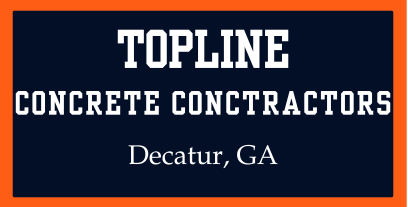
When you're looking to select the best concrete contractor, it's crucial to start by clearly defining your project needs and budget. Taking the time to research local contractors can save you headaches down the line, but with so many options available, how do you narrow them down? You'll want to check their credentials, review past work, and gather multiple quotes to make an informed decision. Before you commit, there are a few more important steps you should consider to guarantee you choose wisely and avoid potential pitfalls.
Assess Your Project Needs
Before you immerse yourself in selecting a concrete contractor, take a moment to assess your project needs. Understanding your project scope is essential; it sets the foundation for everything that follows. Are you planning a driveway, patio, or a foundation for a new build? Knowing the specifics will help you communicate effectively with potential contractors.
Next, think about material selection. Different projects require different types of concrete, such as decorative, stamped, or reinforced concrete. Each material has distinct properties and costs, so it's important to evaluate what suits your project best.
Additionally, reflect on the timeline. Do you need the work done quickly, or is this a more flexible project? This can influence your choice of contractor, as some may have longer wait times than others.
Don't forget about your budget, either. Establishing a clear budget will guide your material selection and help narrow down your contractor choices.
Research Local Contractors
Once you've clarified your project needs, it's time to immerse yourself in researching local contractors. Start by checking online reviews to gauge the reputation of potential contractors. Look for feedback that mentions project timelines and quality of work. Positive reviews can give you confidence, while negative ones might raise red flags.
Next, tap into community recommendations. Ask neighbors or friends if they've worked with any local contractors they'd endorse. Local insights can provide valuable perspectives that online reviews might miss.
Don't forget to familiarize yourself with local regulations that might affect your project. Knowing these rules can save you headaches down the line and guarantee your contractor complies with necessary permits.
Additionally, consider reaching out to contractor associations in your area. They often have lists of qualified professionals who adhere to industry standards.
Check Credentials and Experience
Before hiring a concrete contractor, you need to check their credentials and experience.
Make sure they've a valid license and insurance, and take a look at how long they've been in the industry.
Reviewing their past projects will also give you insight into their skills and reliability.
Verify License and Insurance
When selecting a concrete contractor, verifying their license and insurance is vital to guaranteeing a smooth project. A valid license shows that the contractor has met the necessary state requirements and understands local building codes.
Start with license verification; check with your state's licensing board to confirm that the contractor holds an active license. This step can save you from potential legal issues down the road.
Next, don't overlook insurance coverage. A reputable contractor should carry both liability insurance and workers' compensation. Liability insurance protects you in case of property damage during the project, while workers' compensation guarantees that any injuries sustained on the job are covered.
Request proof of insurance and verify its validity with the provider.
It's important to remember that hiring an unlicensed or uninsured contractor can expose you to financial risks and legal complications. By taking the time to verify these credentials, you can feel confident that you're choosing a contractor who's professional and responsible.
This foundational step can set the tone for your entire project and help you avoid headaches later on.
Assess Industry Experience
Evaluating a contractor's industry experience is essential for guaranteeing your concrete project is in capable hands. When you're selecting a concrete contractor, consider how long they've been in the business. Experienced contractors will have a better understanding of project timelines and the nuances of various concrete applications.
Don't hesitate to ask about their background and expertise in specific types of projects similar to yours. Familiarity with your project scope means they can navigate potential challenges effectively.
Additionally, inquire about their material preferences. A good contractor should be knowledgeable about different types of concrete and be able to recommend the best options based on your needs and budget.
Check if they've worked with the materials you prefer, as this can notably impact the final result. An experienced contractor should be able to provide guidance on the best practices for installation and maintenance.
Lastly, make certain they stay updated with industry trends and technologies. This knowledge not only guarantees quality work but also helps in optimizing project efficiency.
Review Past Projects
One of the best ways to gauge a concrete contractor's capabilities is by reviewing their past projects. This step allows you to see firsthand their craftsmanship and attention to detail.
Look for a portfolio that showcases a variety of work—this can include driveways, patios, and decorative concrete elements. Pay attention to the design aesthetics; you want a contractor whose style aligns with your vision.
When you find projects that interest you, don't hesitate to ask the contractor about the specifics. Inquire about the project timelines and whether they completed the work on schedule. This will give you insight into their reliability and time management skills.
Ask for references from previous clients as well; direct feedback can reveal a lot about the contractor's professionalism and communication style throughout the process.
If possible, visit completed projects in person. This allows you to assess the durability and visual appeal of their work up close.
Review Portfolios and References
To guarantee you choose the right concrete contractor, reviewing their portfolios and references is essential.
Begin with a thorough portfolio analysis; look for projects that align with your specific needs and style preferences. A contractor's portfolio should showcase a variety of completed works, highlighting their skills and versatility. Pay attention to the quality of craftsmanship, design details, and the overall aesthetic of the projects.
Next, conduct a reference evaluation. Reach out to previous clients and ask about their experiences. Inquire about the contractor's communication, reliability, and ability to meet deadlines. This will give you valuable insights into how they handle projects and client relationships.
Don't hesitate to ask for specific examples of challenges faced during the project and how they were resolved.
Additionally, consider checking online reviews and testimonials to gather a broader perspective on the contractor's reputation.
Obtain Multiple Quotes
When you're looking for a concrete contractor, it's smart to obtain multiple quotes.
This helps you compare pricing and services while also evaluating each contractor's experience.
Compare Pricing and Services
Getting multiple quotes is essential to confirm you're making an informed decision when selecting a concrete contractor. When you reach out to different contractors, you'll want to focus on cost transparency and service inclusions. This helps you understand what you're paying for and guarantees there are no hidden fees.
As you gather quotes, compare not just the pricing but also the specifics of the services offered. Some contractors might provide a lower price but could include fewer services, while others might charge a bit more but offer a thorough package.
Look for details like preparation work, materials included, and any warranties. This way, you can assess the overall value rather than just the upfront cost.
Don't hesitate to ask for clarification on any ambiguous terms. A reputable contractor will be happy to break down their pricing and explain any service inclusions.
Once you have all the information, you'll be better equipped to choose a contractor who meets your budget and project needs. Ultimately, this comparison will lead you to a contractor who not only fits your financial parameters but also delivers quality work.
Evaluate Contractor Experience
After you've compared pricing and services, it's important to evaluate the experience of each contractor. Look for those who've tackled projects similar to yours, especially if your project complexity is high.
Ask how long they've been in the business and request examples of past work. A seasoned contractor won't only understand the technical aspects but will also have a solid grasp of material selection, ensuring you get the right materials for durability and aesthetics.
Don't hesitate to ask about any challenges they faced on previous projects and how they overcame them. This insight will give you confidence in their problem-solving skills.
In addition, check for reviews or testimonials from previous clients; these can reveal how trustworthy and reliable the contractor is.
Evaluate Communication Skills
Effective communication is vital in any contractor-client relationship, and this holds especially true for concrete projects. When you're selecting a concrete contractor, you need to assess their communication skills right from the start.
Pay attention to how well they listen to your needs. A contractor who practices active listening won't only understand your vision but will also clarify any uncertainties. This guarantees that you both have a shared understanding of the project scope.
Clear expectations are important. A good contractor will communicate timelines, costs, and any potential challenges upfront. They should provide you with updates throughout the project, keeping you informed about progress and any adjustments that might be necessary.
If a contractor seems evasive or fails to address your questions, it's a red flag.
Additionally, take note of their responsiveness. Prompt replies to your inquiries show that they value your concerns and are committed to the project.
By evaluating these communication skills, you can guarantee a smoother and more successful collaboration, ultimately leading to a concrete project that meets your expectations.
Don't underestimate the importance of effective communication—it's key to a successful outcome.
Understand Contract Terms
When you've established good communication with a concrete contractor, the next step is to thoroughly understand the contract terms. This document outlines the scope of work, timelines, and payment schedules. Don't hesitate to ask for terms clarification if anything seems vague or confusing. It's vital to know exactly what you're agreeing to.
During contract negotiation, pay close attention to details like material specifications, labor costs, and any potential add-ons. Make certain the contractor understands your expectations and that they're reflected accurately in the contract. This is your chance to finalize everything before work begins, so take it seriously.
Moreover, be aware of any penalties for delays or changes to the original plan. Understanding these terms will help you avoid unexpected costs or disputes later on. If there's something you don't agree with, discuss it. A reputable contractor will appreciate your input and be willing to adjust the terms to guarantee both parties are comfortable.
In the end, a clear contract protects you and sets the project up for success. Take the time to review and discuss every detail, making sure you're both on the same page.
Inquire About Insurance
Before hiring a concrete contractor, it's important to inquire about their insurance coverage. This step can save you from potential headaches down the road.
A reputable contractor should carry both general liability insurance and worker's compensation insurance. This not only protects them but also shields you from financial responsibility if accidents occur on your property.
Ask for proof of insurance and verify that it's current. Liability protection is significant; if a worker gets injured or property gets damaged during the project, insurance will cover those costs, keeping you safe from unexpected expenses.
If a contractor can't provide valid insurance documentation, consider it a red flag.
In addition, check the coverage limits. You want to make sure that their insurance is sufficient to cover any potential damages.
Don't hesitate to ask questions about the specifics of their policy; a trustworthy contractor will gladly provide you with the necessary information.
Inquiring about insurance coverage is an important step that many overlook. By taking this precaution, you're guaranteeing that you're hiring a responsible contractor who prioritizes safety for both their team and your property.
Trust Your Instincts
Trusting your instincts can be one of the most valuable tools in selecting a concrete contractor. When you meet potential candidates, pay close attention to your gut feeling. If someone gives you a sense of confidence and reliability, you might be on the right track.
On the other hand, if something feels off, don't ignore those feelings.
Building a personal rapport with your contractor is essential. If you feel comfortable discussing your project and they listen attentively, that's a good sign. A contractor who values communication and understands your needs will likely deliver better results.
During your interactions, observe how they respond to your questions. Do they provide clear answers and show enthusiasm for your project?
If they lack passion or seem dismissive, it might be time to look elsewhere.
Frequently Asked Questions
What Types of Concrete Services Do Contractors Typically Offer?
Concrete contractors typically offer a variety of services, including concrete finishes for durability and aesthetics. You can also explore decorative concrete options, which can enhance your space with unique designs and vibrant colors.
How Long Does a Concrete Project Usually Take to Complete?
A concrete project's duration typically ranges from a few days to several weeks. Factors affecting this include project size, weather conditions, and curing time. It is crucial to discuss your specific needs with your contractor for accurate estimates.
What Is the Best Season for Concrete Installation?
The best season for concrete installation is spring or fall, when weather conditions are mild. Avoid winter's cold and summer's heat, as temperature extremes can affect curing, leading to potential issues with your project.
Can I Change My Project Plans After Hiring a Contractor?
Yes, you can change your project plans after hiring a contractor, but effective contractor communication is essential. Discuss the new project scope openly to guarantee everyone's on the same page and adjustments are manageable.
What Should I Do if I'm Unhappy With the Work?
If you're unhappy with the work, review the contract terms for dispute resolution procedures. Communicate your concerns directly to the contractor, and try to resolve the issues amicably before considering further actions.
Conclusion
In conclusion, selecting the best concrete contractor requires careful consideration of your project needs and thorough research. By checking credentials, reviewing portfolios, and obtaining multiple quotes, you can make an informed decision. Don't underestimate the importance of effective communication and understanding contract terms. Confirm the contractor has proper insurance to protect yourself. Trust your instincts throughout the process, and you'll find a reliable contractor who can bring your project to life.





